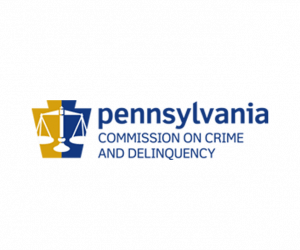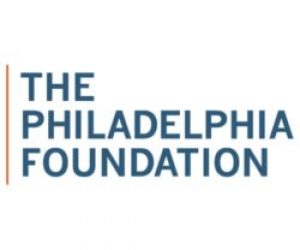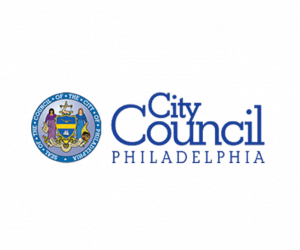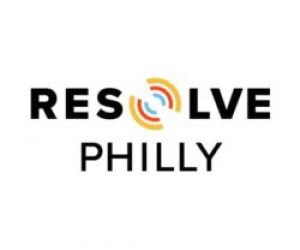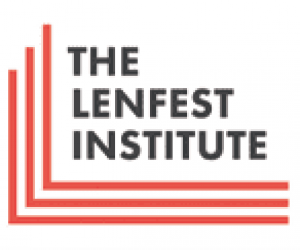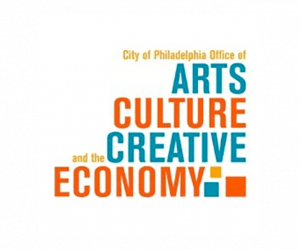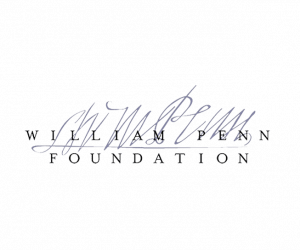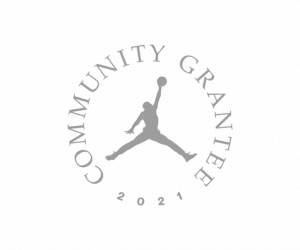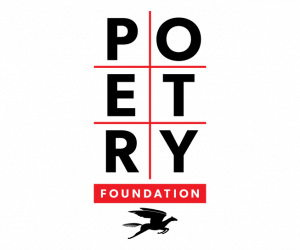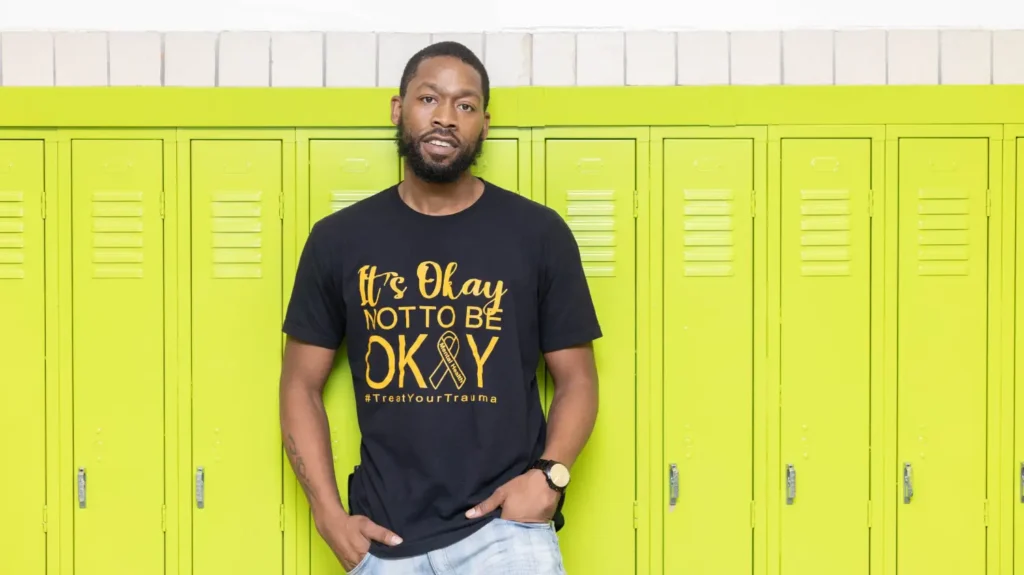
By Kristin Holmes
Hounding families for money was a soul-crushing way to make a living for Jon McKay, but his stint working with a collection agency gave him an idea. He would start an organization to help his community fix its finances.“That’s how I was going to save the hood,” said McKay, 37, “by teaching financial literacy.”
McKay’s Life Outside the Streets group retained that mission until the entrepreneur with a stockpile of ideas, experienced another ‘Aha’ moment. But this one felt more like a thunderclap.
A workshop trainer was describing the effects of traumatic experiences on the brain. Distress from abuse, neglect, violence and poverty affects the functioning of the brain and makes it harder for reason to govern behavior. Research also shows that childhood trauma can be a contributor to the development of serious health conditions.
McKay was fascinated. At the root of so many community ills, McKay believes, is a physical condition that can be treated. He felt compelled to share what he had learned and vowed to change the mission of the organization he founded. Life Outside the Streets would focus on educating people about trauma and its effects on the brain so that they can recognize it and begin the healing process.
Since that day in 2016, McKay has preached a gospel of trauma-induced health and behavioral issues to anyone who would listen. His organization has led workshops promoting arts education to foster coping skills. McKay has spoken at community events and marched to protest the city’s violence. He’s partnered with other activists, including the creators of Philly Truce App, a device that helps its users mediate conflict.
“Stressers like poverty, violence, drug addiction – they damage your stress response system,” said McKay, whose first name Jon is pronounced Yon. “If we look at it like a medical condition and the person as a patient, the approach and tone will be different,” McKay said.
McKay carries that philosophy with him as he walks the halls of Vaux Big Picture High School in North Philadelphia and El Centro de Estudiantes high school in Frankford where he has worked as a full-time “climate manager” and mentor since September.
He describes his duties as “discipline management,” and running detention, while also providing mentorship and support that creates a setting conducive to academic achievement and “success in life.”
Every firm, but friendly “Good Morning,” and brotherly handshake-hug, is an invitation to connect and engage with McKay. The single dad of two, whose home is not far from the schools, has custody of his daughter.
“He brings joy to his work and an unapologetic passion,” said Shavonne McMillan, principal of Vaux. “And he is a visionary. He always has an idea,” she said.
McKay’s latest is to train a of corps of student ambassadors who would serve as mediators to help de-escalate conflict amongst their peers. They would learn the science behind brain trauma, along with coping skills and self-care. The initiative is in the planning stages.
When families don’t get along or violence in the streets threatens loved ones, students can feel “upset” and “messed up,” but try not to let it show, said Rhyin Bradley, 15, a sophomore at Vaux.
In people coping with trauma, the lower parts of the brain play a greater role in releasing neurochemicals that make it harder for the thinking part of the brain to work, according to Diane Wagenhals, Program Director of Lakeside Global Institute (LGI), a North Wales-based education group that hosted the eye-opening workshop McKay attended in 2016. LGI operates brain-based, trauma-centered schools and offers professional training in trauma-based education strategies.
People who display traumatic responses show hyper-aroused/aggressive behavior or they can disassociate and completely check out, Wagenhals said.
McKay’s goal is to train every student in the city to be a trauma-informed peer mediator. And then, he’s hoping to expand his vision by providing trauma-informed civilian security in neighborhoods throughout the city.
State Senator Anthony Hardy Williams pledged to support the effort after hearing McKay speak at an anti-violence event organized earlier this year by Philadelphia City Councilman Kenyatta Johnson.
“He talked about people from our communities protecting our communities who might have been a part of the problem and it reminded me of the Crisis Intervention Network,” Williams said. The network was a successful anti-violence initiative founded in the 1970s to combat gang violence by using crisis teams made up of young people who mediated conflict in city neighborhoods. Williams attributed the program’s success to the connection between the community and those who oversaw its security. Other organizations in the city are spearheading similar efforts, Williams said. Johnson also supports McKay’s efforts and, in a statement, described some of McKay’s ideas for trauma-informed education and neighborhood security as innovative.
But for McKay, the role of peacekeeper didn’t always fit. As a student at Girard College, he was often the disrupter, exhibiting “bad” behavior that landed him in detention.
“I did what I wanted to do. I went to summer school because I refused to write a research paper. I got a lot of detentions and that didn’t deter me,” McKay said.
But what he discovered in detention was a teacher who also worked as the school’s audio-visual supervisor. He assigned McKay to serve as a boom operator and eventually became McKay’s mentor. The experience inspired McKay’s use of the arts and mentorship as a way to cope with trauma in Life Outside the Street’s community programming.
But at Girard and after graduation, arts and culture weren’t enough to quell the rebel in McKay. He went on to study TV production in college but dropped out hoping to study music production at another school. When he couldn’t secure the financial aid, he began working odd jobs (the collection agency), taking steps to start a music career (he performed hip-hop in France) and selling drugs.
“Redemption is a big part of my life story,” McKay said.
An arrest in 2007 led to five years of probation. After another in 2011, McKay served 27 months in prison. Before his incarceration, he had begun attending services at a friend’s church. “I know I walked in smelling like marijuana with drugs in my pocket, but I never once felt judged. They provided me with space to grow,” McKay said.
In prison, he studied the Bible daily.
When he was released in 2014, McKay got jobs as a dishwasher and a cook and then in a factory. He worked in an after-school program, attended the Lakeside trauma training and earned a non-profit management certificate. Life Outside the Streets became an official nonprofit in 2015 with a goal focused on trauma.
“Before you sweep people up and send them to jail, why not sweep them up before they perform a crime – transform their mind,” McKay said. “We know exactly who is on their way to violence. We know the kids that’s been struggling. Why don’t we show up ahead of time and treat the problem?”


